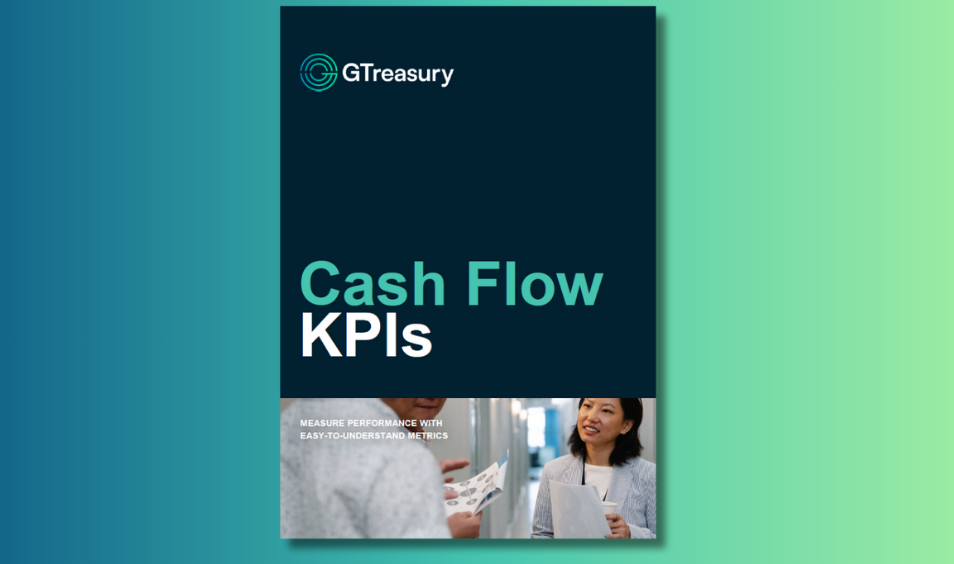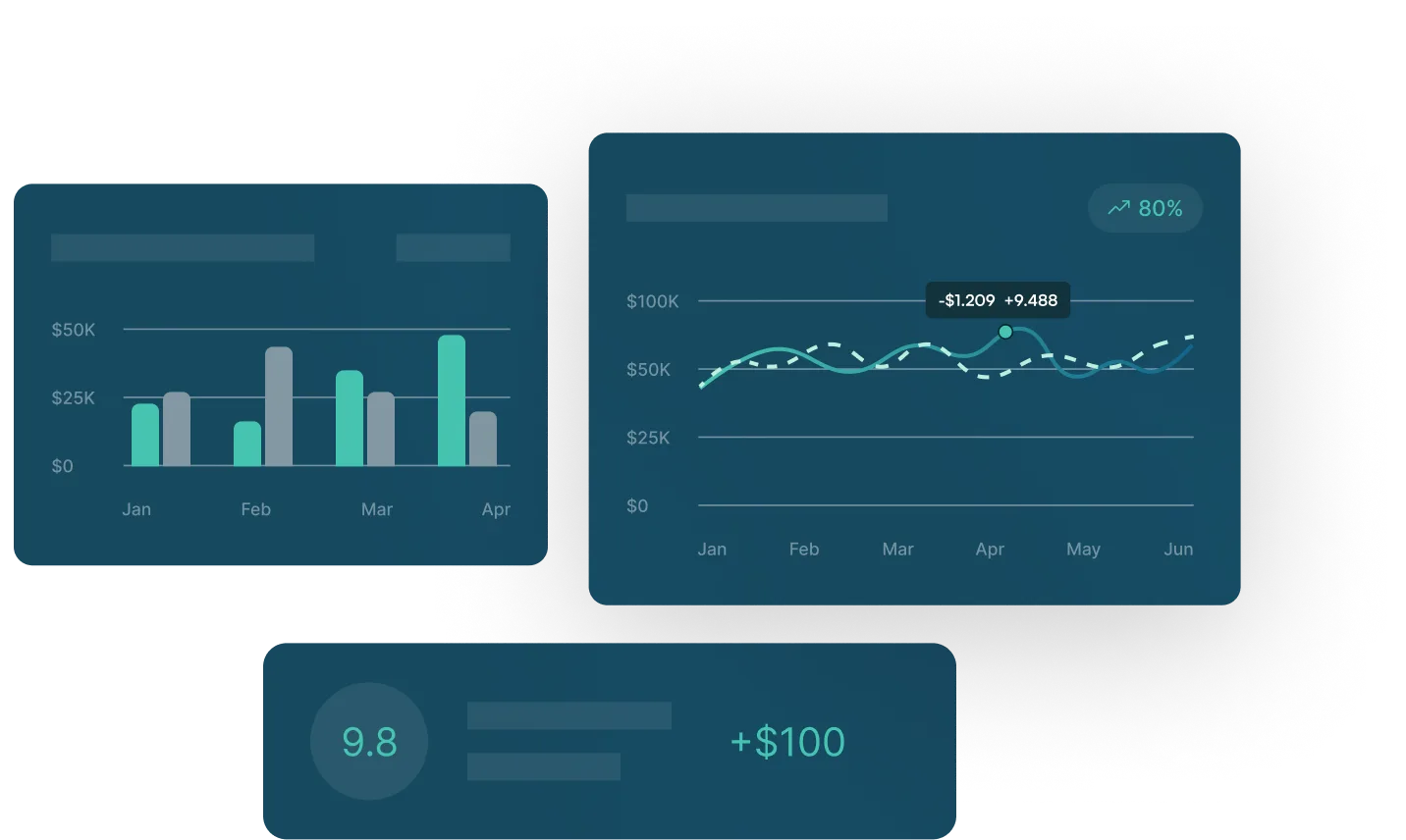expert resources
Resource Library
.png)
5 Ways to Use CashAnalytics
Discover how CashAnalytics, integrated with the GTreasury platform, can enhance your cash forecasting strategy. Watch our on-demand webinar, “5 Ways to Use CashAnalytics,” to learn how to automate and improve accuracy in cash flow forecasting, integrate bank and ERP data, and drive continuous improvements. Hosted by experts Evan Ryan and Neal Cooper.


3 Steps to Achieve Seamless Cash Flow Management with a Cash Management Solution
Discover the top 3 steps to achieve more efficient cash management with a modern cash management solution.


Top Methods of Measuring Cash Forecasting Accuracy
Explore the top two methods of measuring cash forecasting accuracy with GTreasury Forecasting in our latest article.


The Risk Management Wake-Up Call for 2025: Tariffs, Rates, and Reality
Discover how treasury teams can replace outdated, manual processes with automated risk management tools like GTreasury to gain real-time visibility, reduce costly mistakes, and stay audit-ready in the face of economic uncertainty.


Cash Forecasting Accuracy Measurement
Read this practical guide to measuring cash forecast accuracy, offering targeted approaches, calculation methods, and examples to improve treasury forecasting precision.


How Treasurers and CFOs Can Prepare for the Shift to ISO 20022
Explore how treasurers and CFOs can prepare for the transition to ISO 20022 for treasury payments.


From Blind Spots to Bright Spots: How Global Cash Visibility Empowers CFOs to Make Better, Faster Decisions
Learn how global cash visibility can enhance decision-making processes for treasury teams and CFOs in our latest blog.


Real-Time Risk Visibility: Why It’s No Longer Optional
Real-time risk visibility empowers treasury teams to act fast, reduce exposure, and make smarter decisions in volatile markets. Learn more here.


Banking
GTreasury's comprehensive banking solution automates documentation, streamlines audit preparation, and enhances bank fee analysis — all from a single, secure platform.


Employee Spotlight: Ayla Harvey
GTreasury's employee spotlight for April is Ayla Harvey, Senior Copywriter. Read more now.

.jpg)
5 Silent Killers of Cash Flow Forecasting Accuracy and How to Eliminate Them
Explore how you can eliminate cash flow forecasting accuracy challenges for your organization in GTreasury's latest blog.


How Multilateral Netting Reduces FX Costs
Multilateral netting offers a smarter, more efficient way to manage global cash. Find out why multinational companies turn to GTreasury for their netting solution.


Building the Business Case for Better Cash Visibility
Download GTreasury's 6-step guide to building a winning business case for better cash visibility. Learn how to quantify risks, costs, and benefits of moving beyond spreadsheets to gain executive approval for treasury management technology that drives strategic financial decisions.


Cash Forecasting in Multinational Organizations
Download GTreasury's guide to mastering cash forecasting in multinational organizations. Learn strategies to centralize visibility, automate data collection, and optimize liquidity across global operations—enabling treasury teams to support strategic financial decisions with accurate, real-time cash position data.


An Introduction to High Value Cash Forecasting
Discover how to implement high-value cash forecasting with GTreasury's comprehensive guide. Learn strategies to elevate treasury operations beyond basic monitoring into a strategic function that optimizes working capital, reduces costs, and supports confident financial decision-making.


Data Driven Cash Forecasting
Download GTreasury's guide to data-driven cash forecasting and learn how to leverage bank, ERP, and budget data to create accurate cash flow projections. Discover key forecasting methodologies including ledger unwind, statistical analysis, and driver-based modeling that minimize manual effort while maximizing financial insights.


13-Week Cash Flow Forecasting Setup Guide
Download GTreasury's free 13-Week Cash Flow Forecast Setup Guide and learn how to build a world-class forecasting process. Discover best practices for model design, data integration, and process implementation to achieve the perfect balance between accuracy and planning range for optimal treasury management.


Cash Flow KPIs
Download GTreasury's essential Cash Flow KPIs guide to transform your financial reporting. Learn six powerful metrics covering valuation, efficiency, profitability, and leverage that reveal your business's true performance beyond traditional accounting measures. Implement easy-to-understand cash flow metrics that provide managers and investors with actionable insights for strategic decision-making.


Setting Up a Cash Flow Forecast
Discover practical steps to create effective cash flow forecasts with GTreasury's comprehensive guide. Learn proven techniques for accurate financial projections and improved treasury management.


Practical Guide to Bank Reporting Connectivity
Download GTreasury's practical guide to bank reporting connectivity and learn how to automate bank data collection for real-time cash flow visibility, simplified reporting, and enhanced treasury operations.


Differences between Direct and Indirect Cash Forecasting
Learn about direct and indirect cash forecasting methods, their timeframes, and applications. Discover which approach best suits your business's liquidity management needs.


How Will Machine Learning, Artificial Intelligence, and Automation Help Accounting and Treasury?
Discover how AI, machine learning and automation transform finance by enhancing decision support and freeing teams to focus on strategic, value-adding activities.


"Simple" Forecasting Methods Are Still Better
Despite advances in machine learning, traditional statistical forecasting methods remain more effective for cash management. Simple still beats complex in forecasting accuracy.


Cash Forecasting Data Visualizations
Transform complex cash flow data into actionable insights with powerful visualization techniques that reveal trends, highlight variances, and enhance strategic decision-making.


How to Extend the Cash Flow Projection Horizon
Automate your cash flow projections with powerful software that connects to ERPs and banks, eliminating manual work and providing accurate visibility for strategic financial planning.

Explore Success Stories


Bruker
Discover how Bruker transformed its treasury operations with GTreasury, replacing manual processes and achieving streamlined, scalable financial management.


OneSpan
OneSpan transformed treasury forecasting with GTreasury, cutting forecast time from 3 days to 30 minutes while generating $3M in additional interest income.


The Arnott's Group
Arnott's Group built scalable treasury operations with GTreasury, achieving 65% faster cash close and 30% time reduction in reconciliation.

Explore Articles


3 Steps to Achieve Seamless Cash Flow Management with a Cash Management Solution
Discover the top 3 steps to achieve more efficient cash management with a modern cash management solution.


Top Methods of Measuring Cash Forecasting Accuracy
Explore the top two methods of measuring cash forecasting accuracy with GTreasury Forecasting in our latest article.


The Risk Management Wake-Up Call for 2025: Tariffs, Rates, and Reality
Discover how treasury teams can replace outdated, manual processes with automated risk management tools like GTreasury to gain real-time visibility, reduce costly mistakes, and stay audit-ready in the face of economic uncertainty.

Explore Videos

.png)
5 Ways to Use CashAnalytics
Discover how CashAnalytics, integrated with the GTreasury platform, can enhance your cash forecasting strategy. Watch our on-demand webinar, “5 Ways to Use CashAnalytics,” to learn how to automate and improve accuracy in cash flow forecasting, integrate bank and ERP data, and drive continuous improvements. Hosted by experts Evan Ryan and Neal Cooper.


Global Payments Simplified: Do More with Less Without Sacrificing Control
Miss our latest webinar? Watch "Global Payments Simplified: Do More with Less Without Sacrificing Control" exploring how modern finance leaders are streamlining global payment operations.


The Evolving Role of Treasury in Investment Management - Maximizing Returns Amidst Uncertainty
Modern treasury teams are evolving investment strategies. Learn how to eliminate fragmented workflows & maximize returns with real-time insights.

Explore Product Information


Banking
GTreasury's comprehensive banking solution automates documentation, streamlines audit preparation, and enhances bank fee analysis — all from a single, secure platform.


GSmart Forecast Insights
Transform cash forecasting with GSmart AI. Get instant variance analysis, actionable insights, and board-ready reports in under 20 seconds. Try it today.


GSmart Ledger
GSmart Ledger delivers AI-powered AP/AR analytics for accurate cash flow forecasting, optimizing DSO/DPO metrics with real-time visibility and automated insights for confident financial planning.

Explore Reports


Cash Forecasting Accuracy Measurement
Read this practical guide to measuring cash forecast accuracy, offering targeted approaches, calculation methods, and examples to improve treasury forecasting precision.


Building the Business Case for Better Cash Visibility
Download GTreasury's 6-step guide to building a winning business case for better cash visibility. Learn how to quantify risks, costs, and benefits of moving beyond spreadsheets to gain executive approval for treasury management technology that drives strategic financial decisions.


Cash Forecasting in Multinational Organizations
Download GTreasury's guide to mastering cash forecasting in multinational organizations. Learn strategies to centralize visibility, automate data collection, and optimize liquidity across global operations—enabling treasury teams to support strategic financial decisions with accurate, real-time cash position data.

See GTreasury in Action
Get connected with supportive experts, comprehensive solutions, and untapped possibility today.























